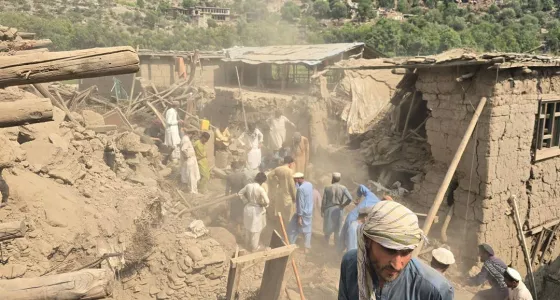On the night of 31 August, a powerful earthquake tore through Kunar and Nangarhar Provinces in eastern Afghanistan. In the darkness, homes crumbled, roads vanished and entire communities were left reeling in shock. In the days that followed, more than 17 aftershocks caused further destruction and turmoil for Afghans already fighting for survival.
Tragically, over 2,150 people have lost their lives and more than 3,600 have been injured. Whole neighbourhoods have been reduced to rubble, leaving families without homes, safety or support trying to survive with whatever they can salvage.
For many of those affected, this disaster has struck just as they were beginning to rebuild their lives. In recent months, Afghans have faced multiple crisis, including thousands who have been forced to leave Pakistan and return to Afghanistan. Often with little warning and few belongings, now they find themselves uprooted once again.
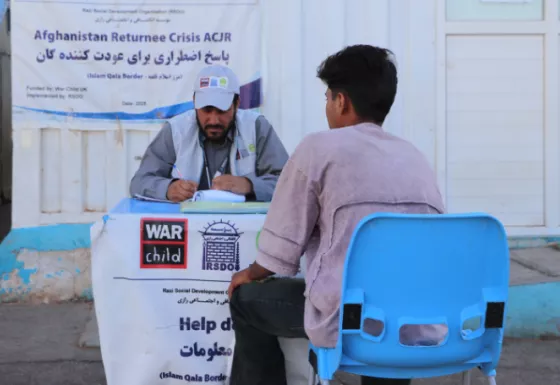
Communities are reeling from the loss of loved ones, homes and livelihoods and its children who are bearing the heaviest burden. Many have lost everything: homes destroyed and classrooms reduced to rubble, children are sleeping out in the cold or in makeshift tents as temperature drop each night. Families are struggling to pick up the pieces to rebuild their lives.
“The earth suddenly shook,” explained Yasser, a 62-year-old caregiver.
"Everyone was buried under the soil in their own homes. Whoever we came across would say their home had been destroyed and no one knew the condition of the others.
“Those who survived and weren’t injured were calling out for help. Many people, including children and women, were injured or lost their lives. Most of our animals also perished.
“Early in the morning we searched for the bodies, there were heavy casualties. Over the course of three to four days, we pulled out the dead and the injured.”
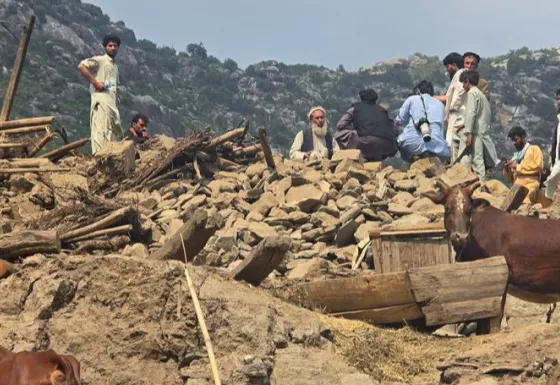
For many child returnees, the earthquake has taken what little stability they had left. It has stolen familial bonds, classrooms and the small routines that made them feel somewhat safe. They now facing another chapter of uncertainty.
“We lost everything — we didn’t even have clothes to wear” Continued Yasser. “We were forced to leave our homes and now we live in tents, we can’t go back to our homes.
“We are poor people. We only had a small amount of farmland and animals, so everything we had was lost. Winter is approaching — if we don't sort out clothes and food for our family, life will become difficult. Living in tents is extremely difficult. We lost everything.”
What is War Child doing to help?
War Child with our local Afghan partner, Organization for Human Welfare (OHW), are supporting children and families impacted by the earthquake. Together, we are helping families meet their most urgent needs by providing food, blankets, hygiene kits and other essentials to those who have lost their homes.
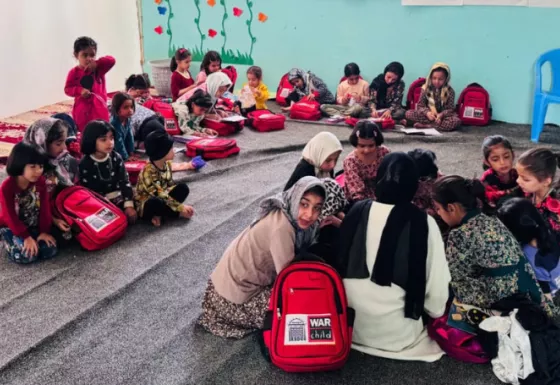
We have opened child friendly centres that give children a safe place to play, learn and begin to recover from trauma with the support of trained staff. So far, we have helped 540 children but many more are still waiting.
Together with OHW and the Razi Social Development Organization (RSDO), War Child are also meeting returnees at border points and in local communities. We are helping families register for assistance, access cash support, and receive essential items such as food and clean water.
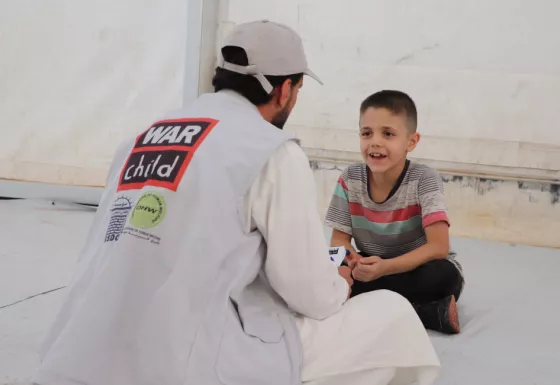
Our teams are also providing psychological first aid and counselling to children and caregivers affected by anxiety or trauma. So far, over 3,000 people have joined one-to-one and group support sessions that help them cope and rebuild confidence.
Through our protection work, we are identifying vulnerable children, those with disabilities and women-headed households and connecting them specialist care.
“The teachers give us toys to play with and teach us both modern and religious lessons,” explained Aryan, aged 13.
“These centres have helped us forget the terrible events of the earthquake, the destruction, and the hardships we faced. The teacher gives us toys to play with, books to study. These things help us to forget bad events.”
“My son was injured in the recent earthquake and has a broken arm. I brought him here [the centre] so the staff could register him for cash assistance to help us”, explained Suhanna, a caregiver. “We are very grateful for your support.”

